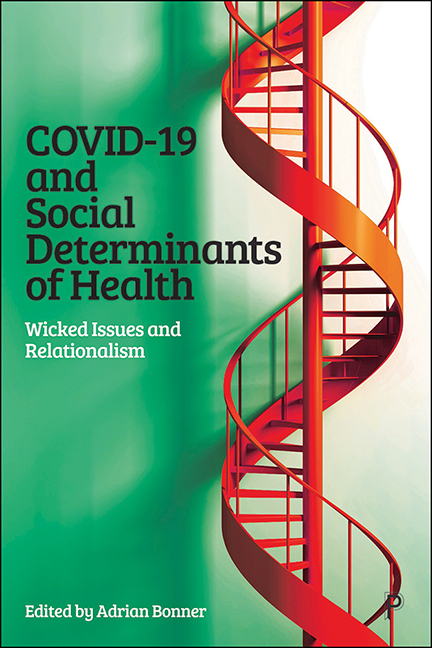Book contents
- Frontmatter
- Miscellaneous Frontmatter
- Contents
- List of figures and tables
- Notes on contributors
- Foreword
- Introduction
- Part I Wicked issues and relationalism
- Part II Regionalism and geopolitical environments
- Part III Public sector, COVID-19 and culture change
- Part IV The third sector
- Part V The case for relationalism
- Part VI Engagement and proposed changes
- Conclusion
- Appendix The Centre for Partnering
- Index
17.1 - Case study: A relationalism exemplar
Published online by Cambridge University Press: 18 January 2024
- Frontmatter
- Miscellaneous Frontmatter
- Contents
- List of figures and tables
- Notes on contributors
- Foreword
- Introduction
- Part I Wicked issues and relationalism
- Part II Regionalism and geopolitical environments
- Part III Public sector, COVID-19 and culture change
- Part IV The third sector
- Part V The case for relationalism
- Part VI Engagement and proposed changes
- Conclusion
- Appendix The Centre for Partnering
- Index
Summary
To build the case for relationalism and its associated relational dividends, the following illustration shows the establishment of a knowledge base, see Figure 17.1.
The proposed projects through which relationalism can be researched include the use of public assets, renewable energy initiatives and addressing homelessness. It is intended to consider these projects in the context of their contribution to the social determinants of health as described in this volume and, specifically, their aim to tackle wicked issues affecting people, communities and inequality.
The Centre for Partnering will play a facilitating role in establishing, monitoring and reporting upon the projects forming part of the Exemplar Projects Initiative. The evidence collected will form part of the relationalism knowledge base.
The Working Groups forming part of the Centre for Partnering’s governance arrangements will consider the various learning points arising from the Exemplar projects from a public, private, third sector and regional perspective. The groups will make proposals to continually improve the effectiveness of the Exemplar Projects Initiative where these can enhance the value of the knowledge base and research/monitoring activities.
One outcome from compilation of the knowledge base will be the need to accredit those organisations and individuals seeking relational dividends from partnering. This is especially important in terms of promoting a new partnering culture through which ideas and innovation can be introduced. For example, a proactive market will need to identify those public sector organisations (councils) who are willing and able to accept proposals and equipped to judge which forms of commercial enterprise are suitable for entering a relational contract. An accreditation model will provide evidence to all parties seeking to adopt a culture based on relationalism and its core principles.
It is the intention of the Centre for Partnering to develop a communication strategy through which its knowledge base will be disseminated. The Exemplar programme is intended to provide a practical perspective on the benefits of relationalism as it could impact upon the economic wellbeing of the country post-Brexit/COVID-19 and during the cost of living crisis.
- Type
- Chapter
- Information
- COVID-19 and Social Determinants of HealthWicked Issues and Relationalism, pp. 309 - 311Publisher: Bristol University PressPrint publication year: 2023

